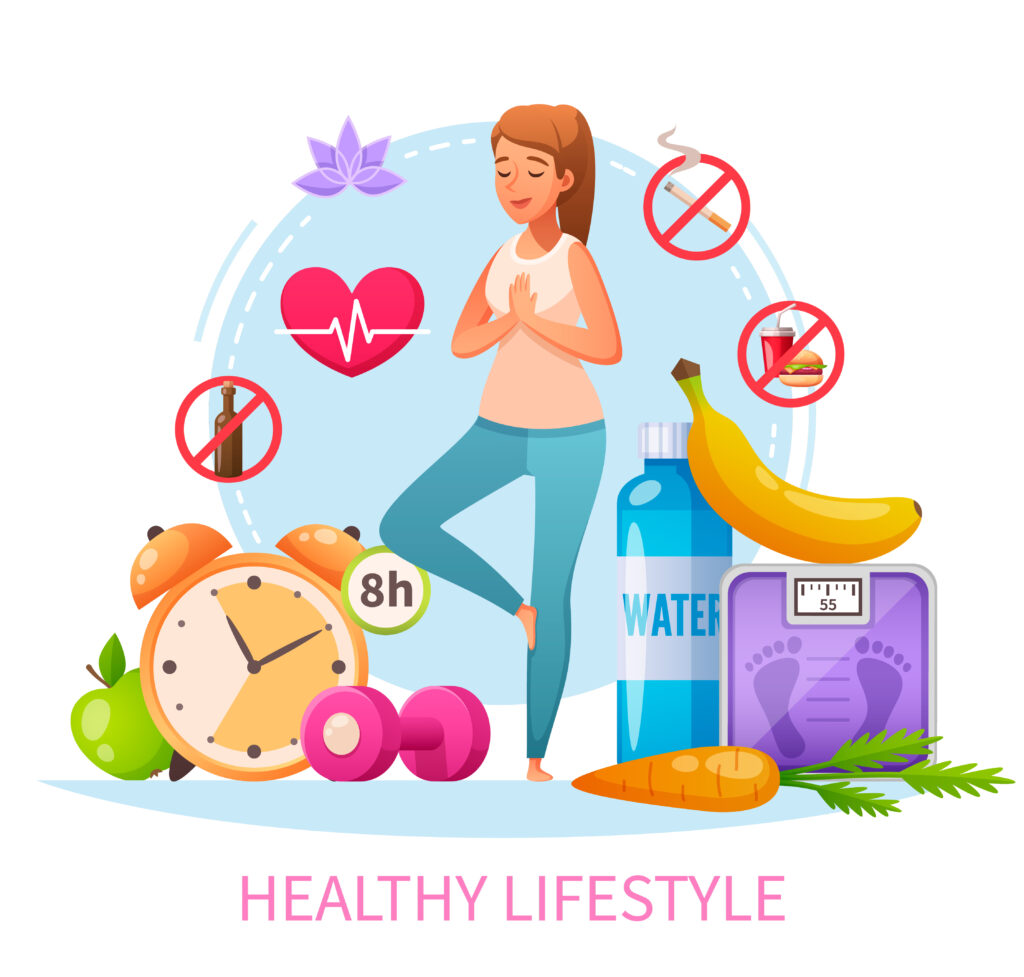Hormones are chemical messengers in the body that play a vital role in regulating various bodily functions, including metabolism, growth, reproduction, and mood. However, hormonal imbalances can cause a range of health problems, such as weight gain, fatigue, depression, and infertility. Here are five natural ways to balance your hormones.
Eat a balanced diet:
A healthy diet is one of the most important factors in balancing your hormones naturally. The food you eat can affect your hormone levels, either positively or negatively. Therefore, it’s essential to eat a balanced diet that provides all the nutrients your body needs.
To balance your hormones, focus on whole, nutrient-dense foods, such as fruits, vegetables, whole grains, lean proteins, and healthy fats. Avoid processed and sugary foods that can cause inflammation and disrupt hormonal balance.
Include foods that are rich in vitamins and minerals, such as zinc, magnesium, vitamin D, and vitamin B6, as they play a crucial role in hormone synthesis and regulation. Also, eat plenty of fiber-rich foods to support healthy digestion and eliminate excess hormones from your body.
Get enough sleep:
Getting adequate sleep is critical for hormone balance, as your body releases hormones during sleep that help regulate various bodily functions. Lack of sleep can disrupt the delicate balance of hormones and lead to hormonal imbalances.
Therefore, aim to get seven to eight hours of sleep each night, and maintain a consistent sleep routine. Create a relaxing sleep environment, avoid electronics and bright lights before bedtime, and limit caffeine and alcohol intake, as they can disrupt sleep patterns.
Manage stress levels:

Chronic stress can lead to hormonal imbalances, as stress hormones like cortisol can disrupt the delicate balance of other hormones in the body. Therefore, it’s essential to manage stress levels and find ways to relax and reduce stress.
Try stress-reducing activities like yoga, meditation, deep breathing exercises, or taking a relaxing bath. Also, prioritize self-care and make time for activities that bring you joy and relaxation.
Exercise regularly
Regular exercise is essential for hormone balance, as it can reduce stress levels and improve insulin sensitivity, which can help regulate hormones. Aim to exercise for at least 30 minutes most days of the week, and include a mix of aerobic and strength-training exercises.
Also, avoid over-exercising or excessive endurance exercise, as it can increase stress hormones and disrupt hormonal balance. Instead, aim for moderate-intensity exercise that you enjoy and can sustain long-term.
Limit exposure to toxins
Exposure to toxins in our environment can disrupt hormone balance, as they can mimic or interfere with the actions of hormones in the body. Therefore, it’s essential to limit exposure to toxins and create a toxin-free environment.
Reduce exposure to toxic chemicals in household products, such as cleaning supplies, personal care products, and food packaging. Choose natural and non-toxic alternatives whenever possible.
In conclusion, balancing your hormones naturally is possible through a combination of lifestyle changes, including eating a balanced diet, getting enough sleep, managing stress levels, exercising regularly, and limiting exposure to toxins. These changes may take time to show results, but they are essential for maintaining optimal hormonal balance and overall health.


